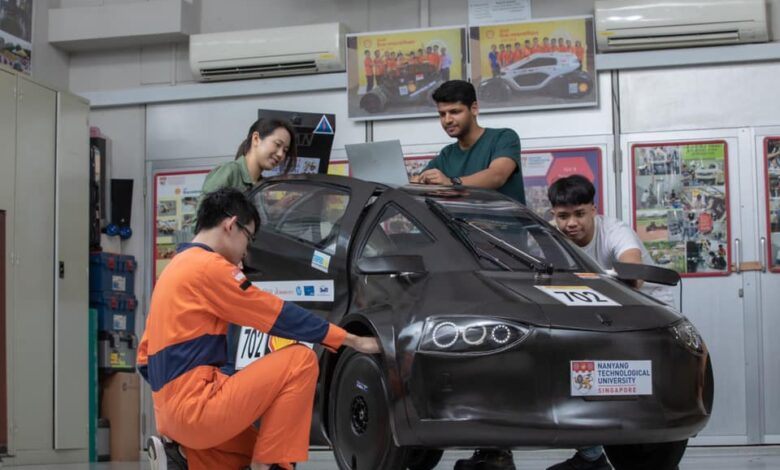Malaysia Needs To Herald The Growing Trend Of Industrial Universities

In the dynamic landscape of higher education, Malaysia has witnessed a significant evolution, however, with the emergence of industrial universities in other parts of the world, Malaysia is lagging behind conventional universities, which still intertwine with the everchanging concept of policy and systems. These industrial-based institutions represent a paradigm shift, aiming to bridge the traditional gap between academia and industry by offering specialised programs tailored to meet the evolving demands of the workforce, in creating core knowledge and skills, which create high-skilled talents. But what sets industrial universities apart from their traditional counterparts? How do these institutions shape the future of education and industry collaboration, and how does it affect Malaysia? Let’s embark on a journey to explore the intricacies of industrial universities and unravel their impact on the educational landscape.
At the heart of industrial universities lies a revolutionary approach to curriculum development. Unlike traditional universities that often offer broad, theoretical programs, industrial universities meticulously craft their curricula in collaboration with industry partners, which involve not only the involvement of industry partners but also knowledge, skills, and techniques which never been taught hands-on in conventional universities. Imagine a curriculum designed not just based on academic theories but rooted in real-world industry needs. This industry-aligned curriculum is a testament to the proactive nature of industrial universities, ensuring that graduates are equipped with the practical high skills and knowledge demanded by today’s competitive job market all over the world.
Internships, apprenticeships, and hands-on training are not mere add-ons in industrial universities; they are integral components woven into the fabric of education. Students don’t just learn; they immerse themselves in real-world scenarios, gaining invaluable insights and experiences that textbooks alone cannot provide, including soft skills and self-dependent. This begs the question: Shouldn’t education be a seamless blend of theory and practice, preparing students not just for exams but for the challenges awaiting them in the professional realm?
The collaborative spirit of industrial universities extends far beyond the classroom walls. These institutions forge robust partnerships with industry players, creating a symbiotic ecosystem where academia meets practicality head-on. Picture a scenario where industry experts actively contribute to curriculum development, ensuring that what students learn is not confined to academic theories but reflects the pulse of the industry. This collaborative model isn’t just about imparting knowledge; it’s about co-creating solutions to real-world problems.
Advisory boards comprising industry stalwarts play a pivotal role in shaping the direction of industrial universities. Their insights and feedback serve as guiding beacons, steering academic programs toward relevance and excellence. Moreover, joint research initiatives between industrial universities and industries foster innovation and address pressing challenges faced by various sectors. This collaborative approach challenges the traditional notion of academia as a separate entity from industry, sparking a dialogue that enriches both realms.
The essence of education lies in its delivery, and industrial universities take a refreshing approach to teaching and learning. Applied learning isn’t just a buzzword here; it’s a philosophy that drives every classroom interaction, which is different than traditional classrooms. Students aren’t passive recipients of information; they are active participants in their learning journey. This classroom is full of state-of-the-art facilities. Through projects, case studies, and simulations, they gain firsthand experience in tackling complex problems, honing their critical thinking and problem-solving skills along the way.
Mentorship plays a pivotal role in the success story of industrial universities, which is different from conventional classrooms, which only focus on lecturing. Imagine learning directly from industry veterans who not only impart knowledge but also share invaluable insights garnered from years of practical experience hands-on. This mentorship model goes beyond the traditional teacher-student dynamic, fostering a sense of camaraderie and professional growth. The question arises: Shouldn’t education prepare students not just for exams but for the realities of the workplace, instilling in them the resilience and adaptability needed to thrive in dynamic environments?
Research is the lifeblood of progress, and industrial universities are at the forefront of driving meaningful research that transcends academic boundaries. Unlike traditional universities where research may lean towards theoretical exploration, industrial universities prioritize industry-driven research aimed at solving real-world problems. Picture research labs buzzing with activity, where scholars collaborate with industry partners to innovate, create, and transform ideas into tangible solutions.
Innovation hubs within industrial universities serve as crucibles of creativity, nurturing entrepreneurial spirit and fostering a culture of innovation. These hubs not only incubate groundbreaking ideas but also provide the necessary resources and support to turn concepts into market-ready products. With funding flowing in from industry partners, research at industrial universities isn’t confined to academic journals; it makes a tangible impact on industries and society at large. This prompts us to ponder: Shouldn’t research be more than just academic pursuits, but a catalyst for societal and economic transformation?
The ultimate measure of educational success lies in the outcomes it delivers to students. Industrial universities pride themselves on producing graduates who are not just academically qualified but also industry-ready. The emphasis on practical skills, coupled with industry exposure, translates into higher employability rates for graduates. Imagine a scenario where students seamlessly transition from classrooms to boardrooms, armed with the skills, knowledge, and confidence to excel in their careers from day one.
Certifications play a pivotal role in validating these skills, providing tangible proof of competence to potential employers. Industrial universities collaborate with industry bodies to ensure that these certifications are not just symbols on paper but reflections of industry-recognized standards. This raises a pertinent question: Shouldn’t education focus not just on degrees but on empowering students with the skills and certifications that truly make them competitive in the job market?
Behind the scenes of every educational institution lies a governance framework that shapes its policies and practices. Industrial universities bring a unique blend of industry-led governance and academic excellence to the table. Imagine a governing body where industry stakeholders actively participate, lending their expertise to strategic decision-making processes. This fusion of industry insights with academic rigor ensures that programs remain relevant, responsive, and resilient in a rapidly changing world. Industrial universities will become pioneers in creating skills and talents which is never have been offered in conventional universities.
Diversified funding sources further bolster the sustainability and growth of industrial universities. While traditional universities rely heavily on government funding and public grants, industrial universities tap into a mix of government support, industry partnerships, and private investments. This financial independence grants them the flexibility to innovate, expand, and adapt to emerging trends without being bound by bureaucratic constraints. This prompts us to ponder: Shouldn’t education governance be a collaborative effort involving industry, academia, and policymakers, working in tandem to nurture talent and drive progress?
In conclusion, industrial universities in Malaysia herald a new era of education-industry synergy, redefining the contours of higher learning and professional readiness. The transformative impact of these institutions extends beyond classrooms and laboratories; it permeates industries, economies, and societies at large. As we reflect on the journey of industrial universities, one question resonates: Are we ready to embrace a future where education transcends boundaries, empowers individuals, and fuels collective progress? The answer lies not just in words but in actions, as we navigate towards a future where education and industry converge harmoniously for the greater good.
Ts. Dr. Hj. Muhammad Khusairy Bin Capt. Hj. Bakri, a Postdoctoral Research Associate at the Composite Materials and Engineering Center, Washington State University (WSU)




